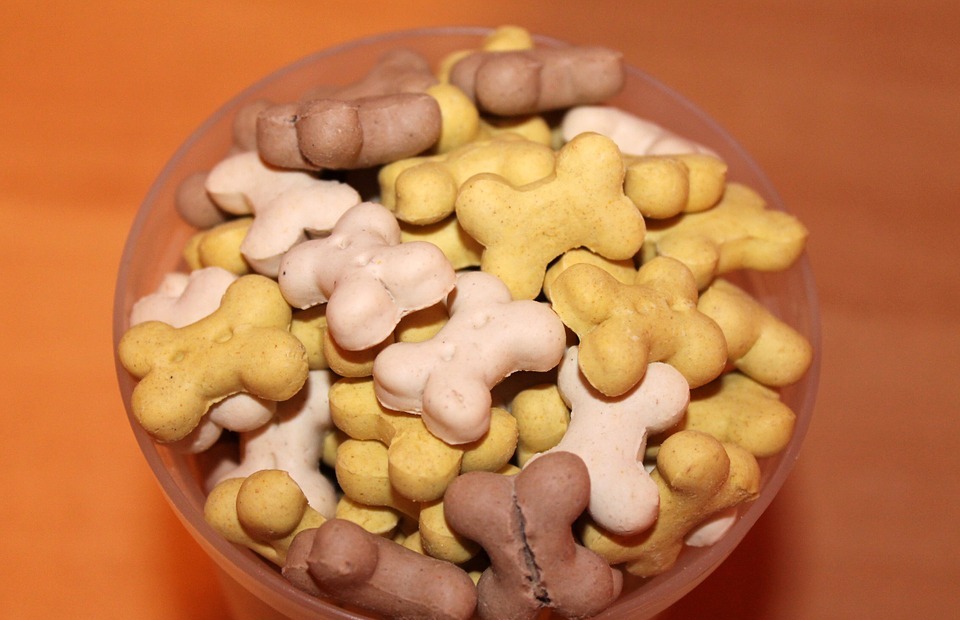As a dog owner, I'm always looking for ways to give my furry friend, Max, the best possible care. That includes ensuring his diet is both delicious and nutritious. I've been hearing about quinoa's amazing health benefits for humans, and naturally, I wondered if it could be a good addition to Max's diet too.
But, to be honest, I've always been a bit hesitant about feeding him human food, especially something like quinoa. It just didn't feel like the kind of thing dogs would normally eat. So, I decided to do some research and get to the bottom of this "can dogs eat quinoa" question.
My findings were surprisingly interesting! While quinoa isn't exactly a traditional dog food, it’s not entirely off-limits either. There are some things to keep in mind, but it can actually be a healthy and tasty addition to your dog’s diet. Let's explore the ins and outs of quinoa for dogs, and find out if it's a good fit for your furry companion.
Part 1: Quinoa – A Closer Look at This "Superfood"

Quinoa, pronounced "keen-wah," is a fascinating seed that's actually related to spinach and beets. It's been a staple food in the Andes Mountains of South America for centuries, and its popularity has exploded worldwide in recent years. You've likely seen it on supermarket shelves and in trendy cafes, but what exactly makes quinoa so special?
Why is Quinoa So Popular?
The buzz around quinoa is warranted! It's packed with incredible nutritional benefits that have earned it the title of "superfood." Here are some key reasons why quinoa is loved by humans and gaining popularity for dogs:
- Complete Protein: Quinoa is a rare gem in the plant world – it's a complete protein, meaning it contains all nine essential amino acids that our bodies need to function properly. This makes it an excellent source of protein for dogs, who need those amino acids for building and maintaining healthy muscle tissue, supporting their immune system, and regulating energy levels.
- Fiber Powerhouse: Quinoa is loaded with fiber, which is absolutely crucial for digestive health. It helps regulate bowel movements, preventing constipation and promoting healthy gut bacteria. This is especially important for dogs, as digestive problems can lead to discomfort and other health issues.
- Rich in Minerals: Quinoa is a good source of iron, which plays a vital role in carrying oxygen throughout the body. Iron deficiency can lead to fatigue, weakness, and other health problems. Additionally, quinoa contains magnesium, which is essential for muscle and nerve function, blood sugar control, and many other vital processes.
- Naturally Gluten-Free: For dogs with gluten sensitivities, quinoa is a great alternative to wheat and other gluten-containing grains. It's naturally gluten-free, making it a safe and digestible option.
- Versatility in the Kitchen: Quinoa's versatility is another reason for its popularity. It can be cooked in various ways and incorporated into a wide range of dishes, from savory salads and stir-fries to creamy bowls and even desserts. This means you can easily find ways to sneak it into your dog's diet in a way that they enjoy.
Part 2: Can Dogs Eat Quinoa? The Verdict is...

Now, let's get to the heart of the matter. Can dogs eat quinoa? The good news is, yes, they can! Quinoa itself is not toxic to dogs. It doesn't contain any ingredients that would upset their digestive system or cause harmful reactions. But, as with any human food, it's not as simple as just tossing it into their bowl.
The "Buts" of Feeding Quinoa to Dogs:
While quinoa isn't harmful to dogs, there are some important things to consider before incorporating it into their diet. Here are some key points:
- Cooking is Key: Raw quinoa can be difficult for dogs to digest and can even pose a choking hazard. Always cook quinoa thoroughly according to the package instructions. It's best to allow it to cool completely before feeding it to your dog, as hot quinoa can burn their mouth.
- Moderation is Key: Quinoa should not be the primary source of your dog's nutrition. It's best to use it as a treat or an occasional supplement to their regular diet. Too much quinoa can upset their stomach or lead to dietary imbalances.
- Individual Sensitivities: Just like humans, some dogs might have sensitivities or allergies to quinoa. Start with a tiny amount and carefully monitor your dog for any signs of adverse reactions, such as digestive upset, itching, vomiting, or any other unusual symptoms. If you notice anything, stop feeding it to your dog immediately and consult your veterinarian.
Part 3: Creative Quinoa Treats for Your Canine Companion

I love making homemade treats for Max, and quinoa has become a fantastic ingredient for whipping up tasty and nutritious snacks. It’s a great way to incorporate quinoa into your dog's diet without relying on store-bought treats that are often loaded with sugar and other unwanted additives.
A Simple Quinoa Treat Recipe:
Here's a basic quinoa treat recipe that Max absolutely loves:
- Cook the Quinoa: Start by cooking a small batch of quinoa according to the package instructions. This will be enough for 3-4 treats.
- Add in Some Yumminess: Once the quinoa has cooled down completely, mix in some healthy and delicious ingredients. You can get creative here – some of Max's favorite additions include shredded chicken, chopped carrots, broccoli, or a spoonful of peanut butter (always make sure the peanut butter is xylitol-free, as xylitol is highly toxic to dogs).
- Shape and Bake: Shape the mixture into small balls or patties. You can even use cookie cutters to make fun shapes! Bake them in the oven at a low temperature (around 300°F/150°C) for 15-20 minutes, or until they're firm and cooked through.
These treats are a fun and healthy alternative to store-bought snacks, providing your dog with a nutritious and flavorful reward.
Part 4: Quinoa as a Mealtime Supplement
Beyond treats, you can also incorporate quinoa into your dog's regular meals. It can be a great way to add some variety and essential nutrients to their kibble or homemade dog food.
Tips for Adding Quinoa to Meals:
- Start Small: Always introduce quinoa gradually, starting with a tiny amount and gradually increasing the amount as your dog tolerates it.
- Cook It Thoroughly: Never feed your dog uncooked quinoa. Make sure it's cooked through completely before adding it to their food.
- Mix It In: Add cooked and cooled quinoa to your dog's existing kibble or homemade meals. It's not meant to replace their main food source, but rather to enhance it.
Part 5: The Nutritional Perks of Quinoa for Dogs
We've established that quinoa is safe for dogs and can be a delicious way to add variety and nutrients to their diet. But why go through the trouble of making homemade treats or adding it to their meals? What exactly are the benefits of quinoa for dogs?
Benefits of Quinoa for Dogs:
- Stronger Muscles: As a complete protein, quinoa provides all the essential amino acids that dogs need to maintain strong and healthy muscles. This is especially important for active dogs or those who are recovering from injury or illness.
- Improved Digestion: Quinoa's high fiber content helps regulate bowel movements, prevent constipation, and promote a healthy balance of gut bacteria. This can lead to better digestion and overall gut health, which is crucial for dogs.
- Increased Energy Levels: The combination of protein and fiber in quinoa can help regulate blood sugar levels and provide sustained energy throughout the day. This is a great benefit for dogs, especially those who are active or have a high energy level.
- Stronger Immune System: Quinoa is a good source of iron, which is essential for carrying oxygen throughout the body and supporting a healthy immune system. This helps dogs fight off infections and stay healthy.
- Healthy Bones and Joints: Quinoa's magnesium content is beneficial for healthy bones and joints, which is particularly important for older dogs or those who are prone to joint problems.
Quinoa's incredible nutritional profile makes it a real powerhouse for dogs. It's a natural way to boost their overall health and well-being.
Part 6: What to Look Out For: Potential Risks and Precautions
While quinoa can be a fantastic addition to your dog's diet, it's crucial to be aware of potential risks and signs of intolerance. Here's what to watch out for:
Potential Risks and Side Effects:
- Digestive Upset: Some dogs may experience digestive upset, such as diarrhea or vomiting, when first introduced to quinoa. This is usually caused by eating too much quinoa or by not cooking it thoroughly enough.
- Allergies: As with any new food, some dogs may be allergic to quinoa. If you notice any signs of allergy, such as itching, hives, swelling, or difficulty breathing, stop feeding your dog quinoa and consult your veterinarian immediately.
- Choking Hazard: Quinoa can be a choking hazard for small dogs, especially if they are given large pieces. Always ensure the quinoa is cooked thoroughly and broken down into small pieces before feeding it to your dog.
- Overfeeding: Remember, quinoa is a treat or supplement, not a primary food source. Overfeeding quinoa can lead to dietary imbalances and digestive issues.
If you are concerned about your dog's reaction to quinoa, it's always best to consult your veterinarian.
Part 7: My Experience with Max
I've been gradually incorporating quinoa into Max's diet for several months now. I started by offering him small bites of my quinoa treats and carefully monitoring his reactions. To my delight, he loved the taste and showed no signs of digestive upset or allergies.
I've since started adding quinoa to his regular meals, mixing it into his kibble or incorporating it into homemade meals. I've noticed that his coat seems to have a healthy shine and his energy levels seem to be slightly higher. Of course, it's difficult to say for sure if it's directly related to the quinoa, but I'm happy with the results so far.
I also appreciate that quinoa has added some welcome variety to Max's diet. He enjoys the different textures and flavors, making mealtime a bit more exciting for him.
Part 8: FAQs: Your Top Quinoa Questions Answered
1. Can Puppies Eat Quinoa?
Puppies can eat quinoa, but it's important to start slowly and introduce it gradually. Their digestive systems are still developing, so they may need a bit more time to adjust to new foods. As always, consult your veterinarian for specific recommendations regarding your puppy's diet.
2. Is Cooked Quinoa Safe for Dogs?
Yes, cooked quinoa is safe for dogs. However, make sure it's cooked thoroughly and cooled down completely before feeding it to your dog.
3. Can Dogs Eat Quinoa Every Day?
While quinoa is a nutritious food for dogs, it shouldn't be a staple in their diet. It's best to give it to them in moderation, as a treat or as a supplement to their regular meals.
4. How Much Quinoa Can Dogs Eat?
The amount of quinoa your dog can eat depends on their size, age, and activity level. Start with small amounts and gradually increase as tolerated. A good rule of thumb is to limit it to a few tablespoons per day.
5. Can Dogs Eat Quinoa with Salt or Spices?
It's best to avoid adding salt or spices to quinoa when feeding it to your dog. These ingredients can be harmful to their health, especially in large amounts. Keep the quinoa plain and simple for your dog.
Conclusion: Quinoa: A Delicious and Nutritious Addition
So, can dogs eat quinoa? Yes! It's a delicious and nutritious treat that can be incorporated into your dog's diet in moderation. It's a good source of protein, fiber, iron, and other essential nutrients. However, always introduce it gradually, monitor your dog for any adverse reactions, and consult your veterinarian if you have any concerns.
Ultimately, the decision of whether or not to feed your dog quinoa is yours. But hopefully, this article has provided you with the information you need to make an informed decision. Remember, a healthy and balanced diet is crucial for your dog's well-being, and quinoa can be a delightful and nutritious addition to their food repertoire. Enjoy experimenting with different quinoa recipes and watch your dog thrive on this delicious and healthy "superfood"!
Everyone is watching
-

Can Dogs Eat Bananas? A Guide to Safe Treats
DOGS & PUPPIESThis comprehensive guide will delve into the world of canine nutrition, focusing on the popular question: can ...
-

Can Dogs Eat Oranges? (Is It Safe or Toxic?)
DOGS & PUPPIESThis article delves into the question of whether dogs can safely consume oranges. We'll explore the nutrition...
-

Can Dogs Eat Grapes? The Shocking Truth About This Fruit
DOGS & PUPPIESThis article delves into the controversial topic of grapes and dogs, exploring the potential dangers associate...
-

Why Do Dogs Eat Poop? Understanding Coprophagia in Dogs
DOGS & PUPPIESThis article delves into the perplexing phenomenon of coprophagia, the act of eating faeces, in dogs. We explo...
-

Can Dogs Eat Shrimp? A Guide to Safety and Risks
DOGS & PUPPIESThis comprehensive guide dives into the world of shrimp and dogs, exploring the potential benefits and risks a...
